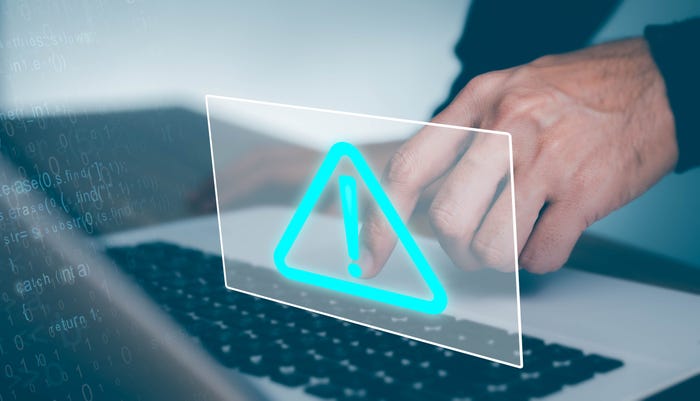Vendors such as IBM and niche players are looking to blockchain for IoT transaction security.
July 14, 2017

More enterprise applications vendors are making plays in the cybersecurity space, and many are beginning to latch on to blockchain for IoT for its promise of handling the unique challenges presented in securing transactions related to devices, according to a new report by Harbor Research.
Microsoft, Cisco and Red Hat each acquired startups to bolster their IoT security portfolios, and Apple, Cisco and Google made notable investments in artificial intelligence during the month of May, according to the Boulder, Colo., IoT strategy and research consultancy.
Harbor Research explores interesting trends each month in the IoT space, performing detailed analyses of moves by major IoT vendors and interesting players. Researchers found that nearly $500 million was invested in IoT security in May, according to the “Internet of Things Investment and Corporate Development Report,” published in June.
“We see so many platforms emerging in IoT events and tools, but we rarely see the type of security we need. There’s a ton of weaknesses in each of the application layers,” said Colin Ferrian, a senior research analyst at Harbor Research. “We’ve been waiting to see a push in cybersecurity, and it seems to be becoming a bit more prominent.”
The tipping point, Ferrian thinks, was likely a combination of an increase in DDoS attacks and the widely publicized “Wannacry” attack in recent months, as well as vendors taking notice of the increased necessity of and profitability in making cybersecurity investments.
The types of encryption technologies that work for securing PCs, securing each layer individually, don’t work for securing transactions related to IoT devices, Ferrian said. Currently, the most common fix is encrypting data as it passes from the device to the gateway and up to the cloud, but if a hacker identifies a hole in this encryption, they will have access to every piece of data from every device using this software, according to the report.
Blockchain technology distributes that risk by distributing the data across multiple sources, limiting the ability of a hacker to do serious damage.
The report points to investments made by IBM to that end, including its recent launch of a distributed energy blockchain project in the Netherlands with Tennet, the aim of which is to allow energy units to be safely bought and sold to others on the grid through the use of an auditable distributed ledger.
IBM also launched its IBM Blockchain Founder Accelerator, joining a rare initiative of blockchain accelerators and offering tech, legal and business expertise to founders building companies on top of this technology – including access to prebuilt software to speed the development of complex blockchain code, according to the report.
[Blockchain360, co-located with IoT Security Summit and Cloud Security Summit, investigates how blockchain can scale to meet the IoT’s needs across industry and enterprise, accelerating widespread adoption. Get your ticket now.]
Ensuring blockchain can adequately protect IoT device transactions is of course not without its roadblocks. There are different types of blockchain technology, and different ways people structure the architecture, Ferrian said. The industry is rife with competition, and standards vary by industry.
“The big hurdle is going to be finding the open-source Linux standard of blockchain,” Ferrian said.
There are a couple of vendors that stand out to that end. Terbine, a large-scale commercial marketplace designed to curate the world’s physical data, uses blockchain to secure the exchange of data and protect data ownership. IoT platform vendor Filament is leveraging blockchain on the technology of their gateways, as opposed to encrypting the data as it’s transported.
“We talk to a lot of industry customers who don’t want to move to a digital strategy, they don’t want to give away the data,” Ferrian said. “We’re hoping blockchain will enable them to have more trust in the system and help this proliferation of IoT in the enterprise move a lot faster.”
About the Author(s)
You May Also Like

.png?width=700&auto=webp&quality=80&disable=upscale)

.png?width=300&auto=webp&quality=80&disable=upscale)


.png?width=300&auto=webp&quality=80&disable=upscale)